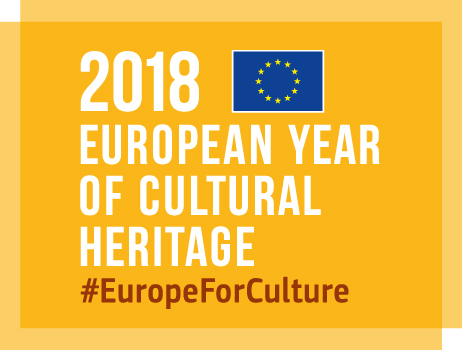Book Presentation “Governing Heritage Dissonance: Promises and Realities of Selected Cultural Policies”
The European Cultural Foundation and Europa Nostra jointly organise the book presentation of Governing Heritage Dissonance: Promises and Realities of Selected Cultural Policies – a pioneering study by Višnja Kisić, winner of the 2013 Cultural Policy Research Award (CPRA) on 12 April 2018 at the House of Europe (Korte Vijverberg 5/6) in The Hague.
PROGRAMME
15:30 – 17:00:
- Welcome by a Representative of the European Commission Representation in The Netherlands (tbc)
- Introductory remarks by
Tsveta Andreeva, Senior Research and Development Officer of the European Cultural Foundation
& Sneška Quaedvlieg-Mihailović, Secretary General of Europa Nostra - Book Presentation by Višnja Kisić, Researcher from Serbia and Secretary General of Europa Nostra Serbia
- Q&A
Followed by Networking Drinks
Please let us know if you would like to attend the book presentation by sending an e-mail to Andjela Gušić at ag@europanostra.org before 10 April 2018.
Please, bring your ID or passport with you as you will be required to show it to the security when entering the Europe House.

Drawing on illuminating case studies from South East Europe, Višnja Kisić connects heritage studies and cultural policies with issues of difference, conflict and reconciliation, prompting us to rethink how we approach the past and deal with diversities between cultures, nations and generations at a time of increasing fragmentation across Europe. Her timely analysis suggests ways of approaching our common heritage that could open up avenues to a better design for Europe’s common future.
The presentation takes place on the occasion of the exhibition Targeting Monuments – Targeting History and Memory displayed in the Atrium of the City Hall of The Hague from 4 to 16 April 2018. Dedicated to the systematic destruction of cultural and religious objects during the wars in former Yugoslavia from 1991 to 1999, it showcases the way in which these crimes were investigated, reconstructed and processed at the International Criminal Tribunal for the former Yugoslavia (ICTY). The exhibition was produced in the frame of the European project “Targeting History and Memory” supported by the EU ‘Europe for Citizens’ programme and implemented by SENSE (Centre for Transitional Justice) and Documenta (Centre for Dealing with the Past) in cooperation with Europa Nostra and a series of partners from various countries of former Yugoslavia.



